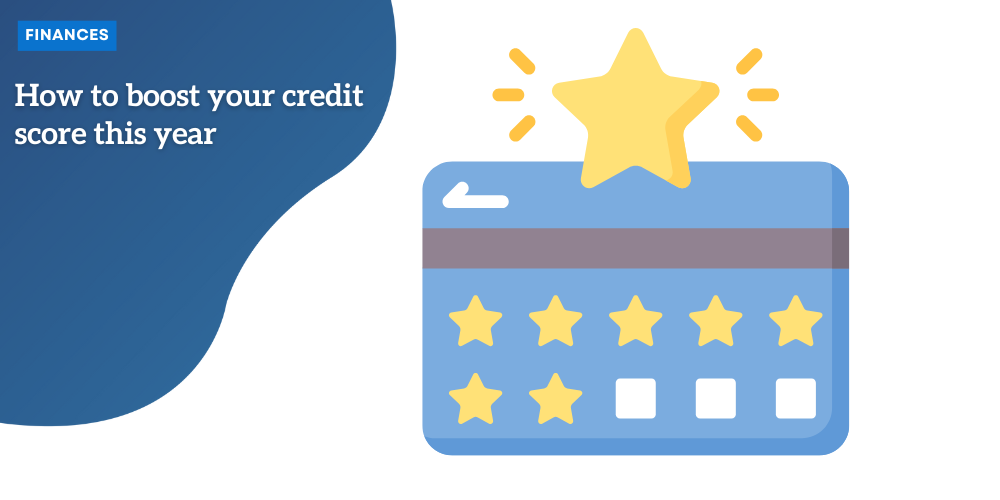How to boost your credit score this year

Anúncios
To boost your credit score this year, consistently pay your bills on time, maintain low credit card balances, and regularly check your credit report for errors.
How to boost your credit score this year is a question many of us are asking. With financial health being so important, it’s essential to understand what steps can truly make a difference. Have you considered how your credit score impacts your daily life?

Understanding credit scores and their importance
Understanding your credit score is essential for your financial health. A credit score influences your ability to secure loans, rent an apartment, or even get a job. It reflects how responsible you are with your borrowed funds and the trust lenders place in you.
Anúncios
What is a Credit Score?
A credit score is a three-digit number, typically ranging from 300 to 850. This number is calculated based on your credit history, including timely payments, debt levels, and types of credit used. The higher your score, the more likely you are to receive favorable terms on loans.
Why is Your Credit Score Important?
Your credit score plays a significant role in your financial life. Here are a few reasons:
- Loan Approval: A higher credit score increases your chances of getting approved for loans.
- Interest Rates: Lenders offer lower interest rates to those with excellent credit scores, saving you money over time.
- Rental Agreements: Many landlords check credit scores before approving rental applications.
Building a good credit score takes time and requires diligence. Avoiding late payments and keeping your debt low can help you improve your score.
In addition to the numerical score, credit reports contain detailed information about your credit history. Regularly checking your credit report can help you identify errors and correct them quickly. Remember, maintaining a good credit score opens doors to financial opportunities.
Factors that affect your credit score
Many factors influence your credit score, and understanding them is crucial for improving it. Knowing how these elements work together can help you take charge of your financial health.
Anúncios
Payment History
Your payment history is one of the most critical factors affecting your credit score. Consistently paying your bills on time shows lenders that you are reliable. Missing payments, on the other hand, can significantly damage your score.
Credit Utilization
Credit utilization refers to the amount of credit you use compared to your total available credit. Keeping this percentage below 30% is generally recommended. A high credit utilization ratio can indicate that you are over-reliant on credit, which may lower your score.
- Keep balances low: Aim to pay off your credit card balances each month.
- Increase credit limits: Requesting an increase on your credit limits can help lower your utilization percentage.
- Avoid opening too many accounts: Each new account can temporarily lower your score.
Length of credit history is another essential aspect. The longer your accounts have been active, the more beneficial it is to your score. Newer credit accounts may negatively impact your score as they do not yet have a performance history.
Types of credit also play a role. Having a mix of credit accounts—like credit cards, a mortgage, and a car loan—can be favorable. Lenders like to see diversity as it reflects your ability to manage different types of debt.
Effective strategies to improve your credit score
Improving your credit score is a journey that takes time and effort. By adopting effective strategies, you can enhance your score and enjoy better financial opportunities.
Pay Your Bills on Time
One of the simplest and most effective strategies is to always pay your bills on time. Late payments can significantly hurt your credit score. Setting up automatic payments can help you stay on track.
Reduce Your Credit Card Balances
Keeping your credit card balances low is crucial. Aim for a credit utilization ratio of under 30%. This means if you have a limit of $1,000, keep your balance under $300. Paying off your credit cards in full each month is an ideal practice.
- Track your spending: Use budgeting apps or spreadsheets to monitor your expenses and determine how much you can pay.
- Make extra payments: Whenever possible, make more than the minimum payment to lower balances faster.
- Consider a debt snowball method: Focus on paying off your smallest debt first for motivation.
Another effective strategy is to regularly check your credit report. Errors can appear on reports, and correcting them can boost your score. You can request a free credit report once a year from each of the three major credit bureaus.
Additionally, diversifying your credit accounts can positively influence your score. If you only have credit cards, consider adding an installment loan, like a car loan or personal loan, to your credit mix.
Common mistakes to avoid when boosting your credit score
When working to boost your credit score, avoiding common mistakes is key. Many people unknowingly engage in habits that can hinder their progress.
Ignoring Your Credit Report
One major mistake is not regularly checking your credit report. Errors on your report can negatively affect your score. Make it a habit to review your report at least once a year. If you find inaccuracies, dispute them promptly.
Making Late Payments
Making late payments is another mistake that can damage your credit score significantly. Set reminders for your due dates, or use automatic payments to ensure you never miss a payment.
- Prioritize your bills: Stay organized by marking payment dates on a calendar.
- Use payment apps: Consider apps that help you stay on track with your payments.
- Communicate with creditors: If you’re struggling to make a payment, reach out to your creditor for assistance.
Another common error is closing old credit accounts. While it may seem helpful, closing older accounts can shorten your credit history and lower your score. Keep these accounts open, even if you don’t use them regularly.
People also often apply for too much new credit in a short time. Each credit inquiry can temporarily ding your score and indicates high-risk behavior. Instead of applying for multiple accounts at once, take your time to research and apply selectively.
Boosting your credit score is an important step towards achieving financial goals. By following effective strategies and avoiding common mistakes, you can improve your creditworthiness. Remember to stay informed about your credit report, make timely payments, and maintain low balances. With dedication and the right habits, a better credit score is within your reach!
| Tips for Boosting Credit Score | Action Items |
|---|---|
| Pay Bills on Time | Set reminders for due dates. |
| Keep Balances Low | Aim for under 30% credit utilization. |
| Check Your Credit Report | Review it for errors regularly. |
| Avoid New Applications | Don’t apply for many loans at once. |
| Diversify Credit Types | Maintain a mix of credit accounts. |
FAQ – Frequently Asked Questions about Boosting Your Credit Score
What is the most important factor that affects my credit score?
The most important factor is your payment history. Making timely payments consistently can significantly improve your credit score.
How can I check my credit report for free?
You can check your credit report for free once a year at AnnualCreditReport.com, which provides access to your reports from the major credit bureaus.
Should I close old credit accounts?
No, closing old credit accounts can shorten your credit history and lower your score. It’s usually better to keep them open.
How quickly can I improve my credit score?
It varies, but by consistently paying bills on time and reducing debt, you can start seeing improvements in your credit score within a few months.






